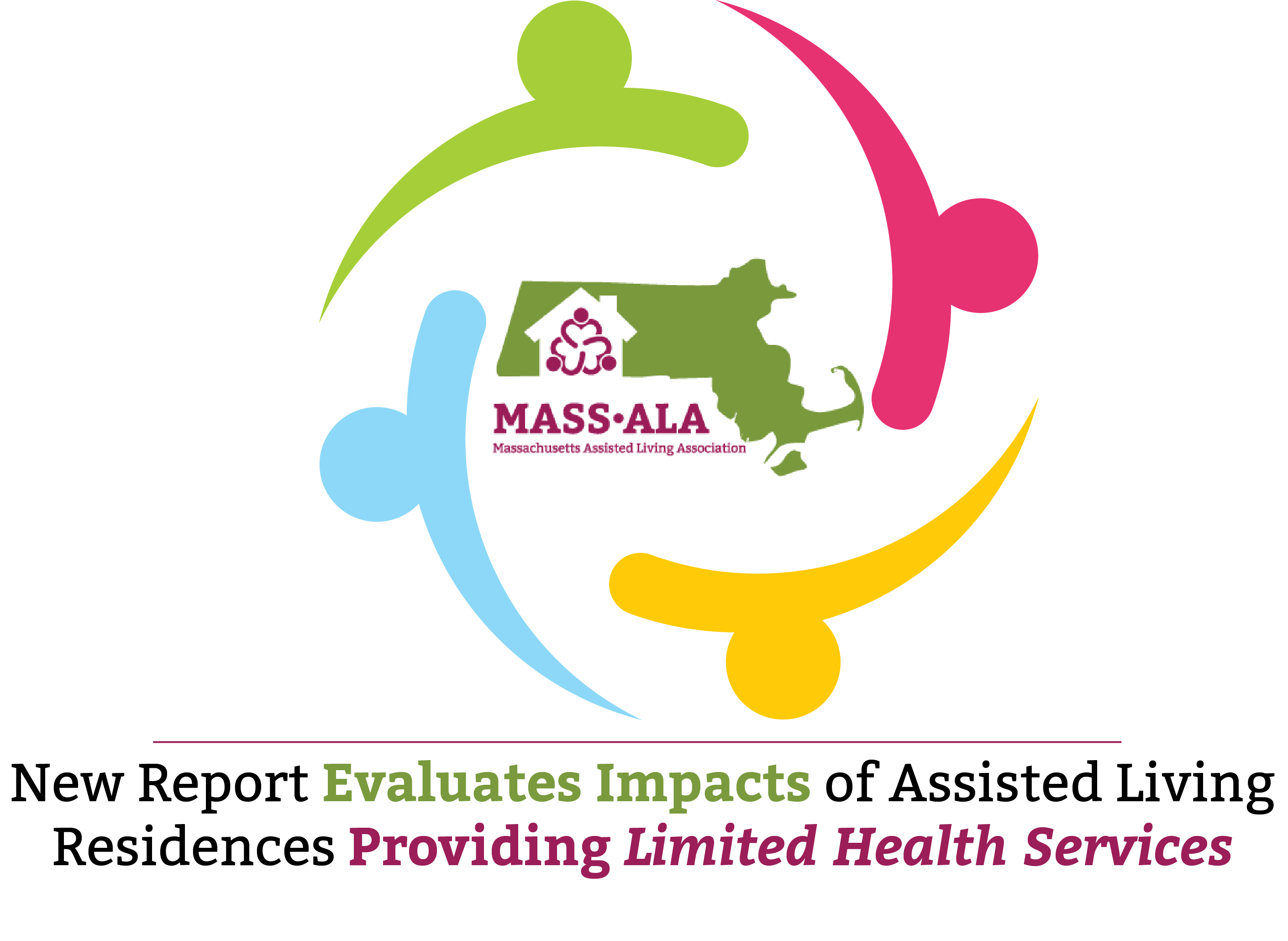
Read the Report Here
The results are in from a new report commissioned by Mass-ALA to evaluate the impact of assisted living residences that have been providing basic health services within the flexibilities allowed under the state of emergency. Many thanks to our members who participated in this study by opening their doors to researchers from Collective Insight, in partnership with the Gerontology Institute’s LeadingAge LTSS Center @UMass Boston.
Provision of Skilled Nursing Care by Assisted Living Residences: Stakeholder Views on the COVID-19 Experience demonstrated that assisted living nurses safely and effectively delivered basic health care to residents in the assisted living setting. Many benefits were identified, including improved coordination of care, increased ability to provide care as needed, and the potential to alleviate resident and family emotional and financial burden by delaying Medicaid-funded nursing facility care.
Historically, assisted living regulations have prohibited nurses from providing any type of skilled nursing care. Prior to the state of emergency, if a resident developed a need for skilled care, they had the options of enlisting the help of a family member, hiring an outside provider, or transitioning into a nursing home where nurses could provide such services.
With the temporary policy set to expire on July 15, 2022, or at the end of the state of emergency, Mass-ALA is supporting a bill sponsored by Senator Pat Jehlen and Representative Smitty Pignatelli that would permanently authorize the provision of basic health services at assisted living residences. The Common Sense Health Services Bill was reported favorably by the Joint Committee on Elder Affairs and now sits before the Joint Committee on Healthcare Financing. Mass-ALA urges the committee to act on the bill prior to the expiration of the emergency authorization.
Other report findings include:
-
Individuals who have insulin-dependent diabetes are especially impacted. Receiving insulin in-house was reported to be a ‘life changer’ for many families. Not only was it more affordable, but nurses and family caregivers also pointed to improved health outcomes resulting from the consistency in which this care was provided by the ALR.
-
ALRs’ provision of basic health care can improve communication and clinical outcomes. Residents reportedly experienced no increased risk of hospital or facility admission after receiving such care from ALR nurses.
-
ALR provision of basic health care need not replace the role of skilled care agencies. Allowing in-residence basic health services can complement the skilled services truly requiring more in-depth expertise or experience, which visiting nurses and home care agencies still provide.
-
ALRs must remain a social, home-like setting. The consensus across interviewees was that providing basic health care in ALRs is the same care residents could receive from their families in their homes and that steps should be taken to ensure the services do not diminish the social or community atmosphere of assisted living.
-
ALR training practices must account for new services. Such training could include refreshers on wound care and dressings, blood sugar monitoring, and injections.
Read the Report Here
Find an Assisted
Living Residence
Find a
Business Partner
